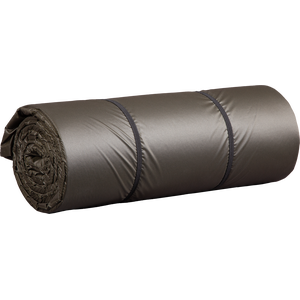
How to choose a sleeping pad
Outdoor activities, Trekking, How to choose -guides by Varuste.net, 3.9.2020
A sleeping pad is the second most important piece of sleeping gear in the outdoors, right after the sleeping bag. The primary purpose of a sleeping pad is to insulate the sleeper from the cold ground. The most important factors to consider when choosing a sleeping pad are insulation, packability (size and weight), durability, and sleeping comfort, which need to be balanced.
When sleeping in a sleeping bag, the body weight compresses the filling under the body, preventing it from providing insulation. There is a common misconception that a sufficiently warm sleeping bag alone is enough. However, in cold winter conditions, a well-insulating sleeping pad is almost as crucial as the sleeping bag and can save the sleeper's night. An insulating sleeping pad is essential in cold conditions because it reduces the compression of the filling and creates an insulating layer between the sleeping bag and the ground.
Sleeping pad's resistance to conductive heat flow is measured or rated in terms of its thermal resistance or R-value. The higher the R-value, the greater the insulating effectiveness.
Below is a general guideline for what R-value is suitable for each season in Nordic countries. However, the user's susceptibility to cold should also be considered when choosing a sleeping pad. Also consider the climate of your camping destination and the average temperatures for different seasons, which can vary significantly from one place to another. Here's roughly how it goes in the Nordic countries:
- When sleeping in summer, the R-value doesn't really matter.
- R-value of sleeping pad used in autumn and spring (3-season) should be at least 3.
- R-value of pad used in winter (4-season) should be at least 5.
Foam
A solid foam pad is made of foam or rubber and is lightweight. Thicknesses usually range from 0.5 to 1.5 cm. The absolute advantage of foam pads is their reliability and durability. They do not need to be inflated and are ready for use immediately when spread out. On the other hand, a foam pad is not very soft, making it less comfortable to sleep on. It also takes up more space when packed compared to an inflatable pad. For this reason, foam pads are often attached to the outside of the backpack. Foam sleeping pads are usually packed by rolling, although many models can also be folded accordion-style. Various coatings can be used on the pad to improve insulation.In colder weather or for maximum comfort, a foam pad works very well under an inflatable pad to provide additional insulation. By doing this, you can significantly increase the R-value of the sleeping pad combination (the R-values of both pads added together).

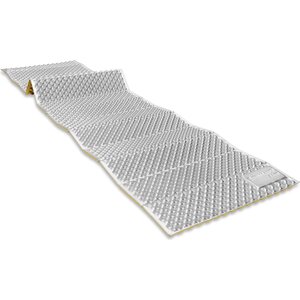
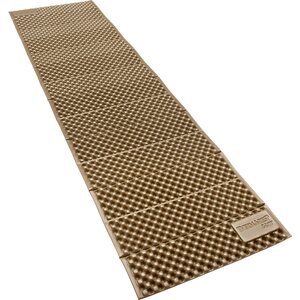
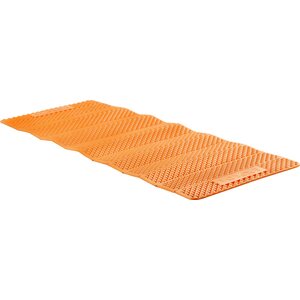
Inflatable
The advantage of an inflatable pad, according to many hikers, is better comfort and more compact packability. On the other hand, an inflatable pad is often heavier and may puncture. The lightest inflatable pads weigh only about 300-400 grams. Inflatable sleeping pads often use additional insulation inside the pad to improve its thermal properties. Synthetic fibre or down is used as additional insulation.
There are both self-inflating and pump/blow-up versions of inflatable pads. A self-inflating pad contains open cell foam inside that expands when the pad is unrolled and the valve is opened. Even then, a few breaths are usually required to fully inflate the pad. Inflatable sleeping pads are fully inflated either by blowing, with a pump, or with a special inflation bag. In winter conditions, we always recommend using a pump or an inflation bag. Blowing into the pad allows moisture to enter, which may reduce the pad's insulation capacity.
Our most popular inflatable pads:
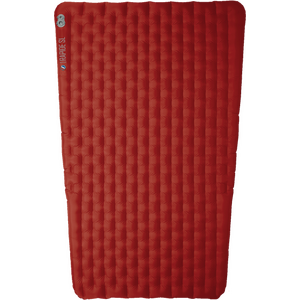
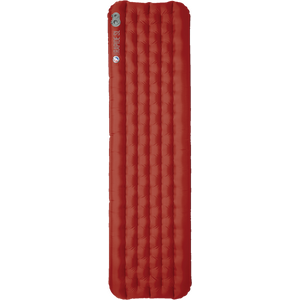

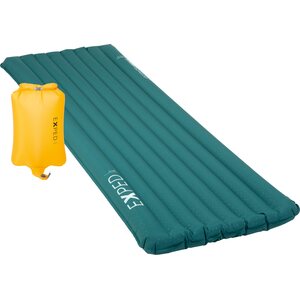
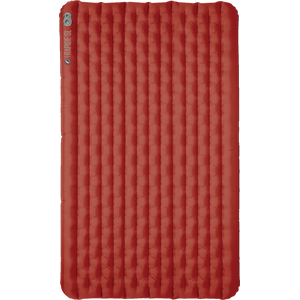
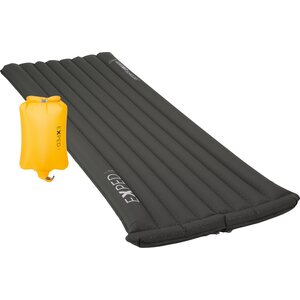
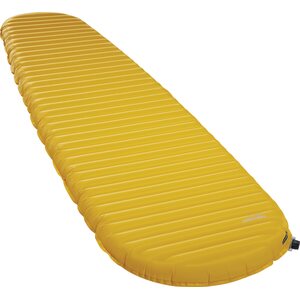
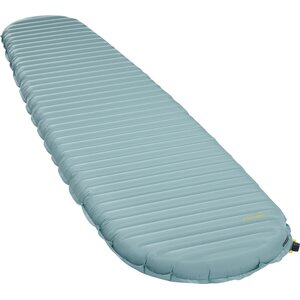
 reviews
reviews